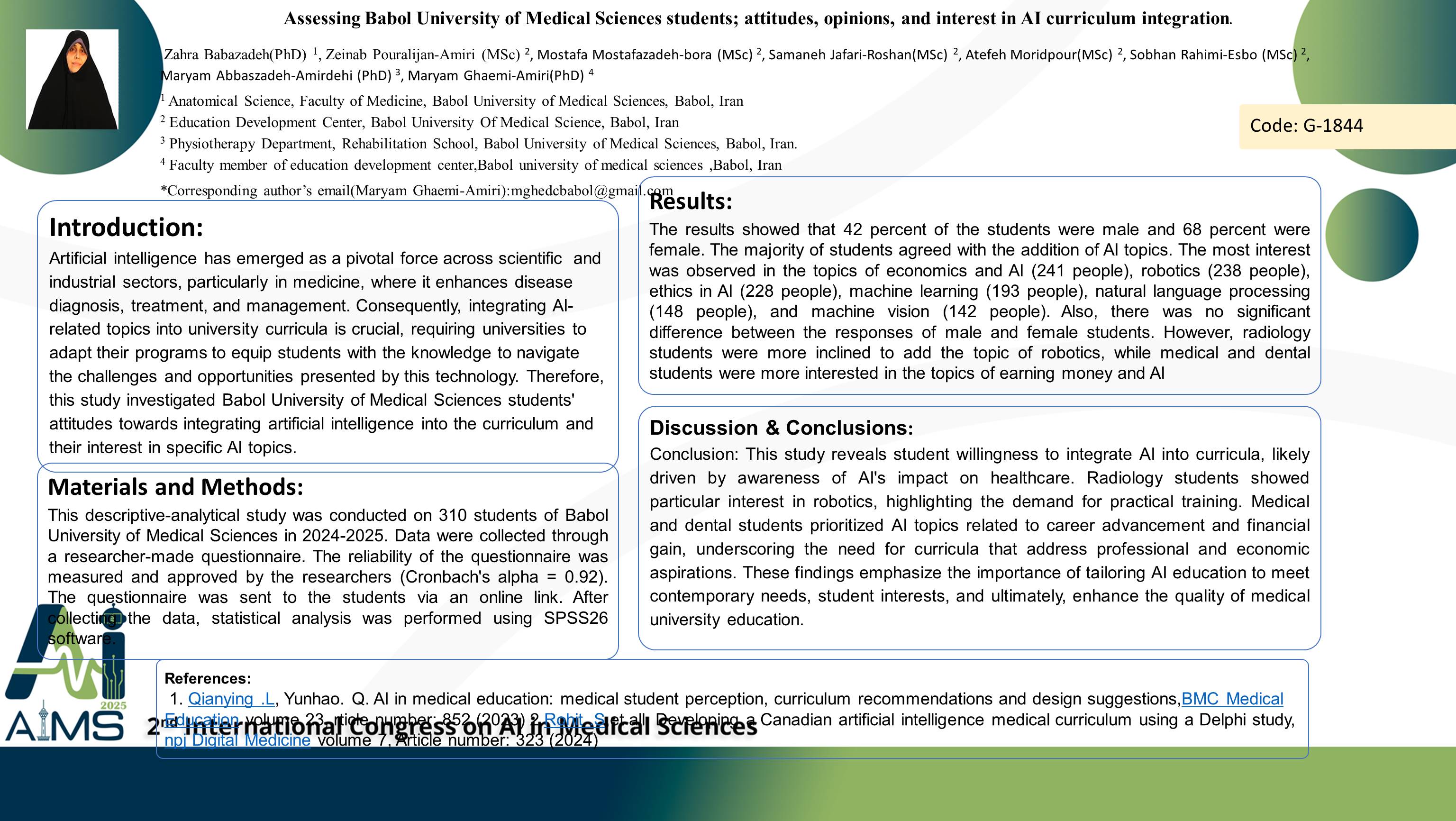بررسی نگرش، نظرات و علاقه دانشجویان دانشگاه علوم پزشکی بابل به ادغام برنامه درسی هوش مصنوعی
کد: G-1844
نویسندگان: Zahra Babazadeh, Zeinab Pouralijan-Amiri (MSc), Mostafa Mostafazadeh-bora (MSc), Samaneh Jafari-Roshan(MSc), Atefeh Moridpour(MSc), Sobhan Rahimi-Esbo (MSc), Maryam Abbaszadeh-Amirdehi (PhD), (PhD)Maryam Ghaemi-Amiri * ℗
زمان بندی: زمان بندی نشده!
برچسب: سیاست گذاری، قانون گذاری و مدیریت سلامت در حوزه هوش مصنوعی
دانلود: دانلود پوستر
خلاصه مقاله:
خلاصه مقاله
Background and aims: Artificial intelligence has emerged as a pivotal force across scientific and industrial sectors, particularly in medicine, where it enhances disease diagnosis, treatment, and management. Consequently, integrating AI-related topics into university curricula is crucial, requiring universities to adapt their programs to equip students with the knowledge to navigate the challenges and opportunities presented by this technology. Therefore, this study investigated Babol University of Medical Sciences students' attitudes towards integrating artificial intelligence into the curriculum and their interest in specific AI topics. Method: This descriptive-analytical study was conducted on 310 students of Babol University of Medical Sciences in 2024-2025. Data were collected through a researcher-made questionnaire. The reliability of the questionnaire was measured and approved by the researchers (Cronbach's alpha = 0.92). The questionnaire was sent to the students via an online link. After collecting the data, statistical analysis was performed using SPSS26 software. Results: The results showed that 42 percent of the students were male and 68 percent were female. The majority of students agreed with the addition of AI topics. The most interest was observed in the topics of economics and AI (241 people), robotics (238 people), ethics in AI (228 people), machine learning (193 people), natural language processing (148 people), and machine vision (142 people). Also, there was no significant difference between the responses of male and female students. However, radiology students were more inclined to add the topic of robotics, while medical and dental students were more interested in the topics of earning money and AI. Conclusion: This study reveals student willingness to integrate AI into curricula, likely driven by awareness of AI's impact on healthcare. Radiology students showed particular interest in robotics, highlighting the demand for practical training. Medical and dental students prioritized AI topics related to career advancement and financial gain, underscoring the need for curricula that address professional and economic aspirations. These findings emphasize the importance of tailoring AI education to meet contemporary needs, student interests, and ultimately, enhance the quality of medical university education.
کلمات کلیدی
Artificial Intelligence, Educational Topics, Medical Students
